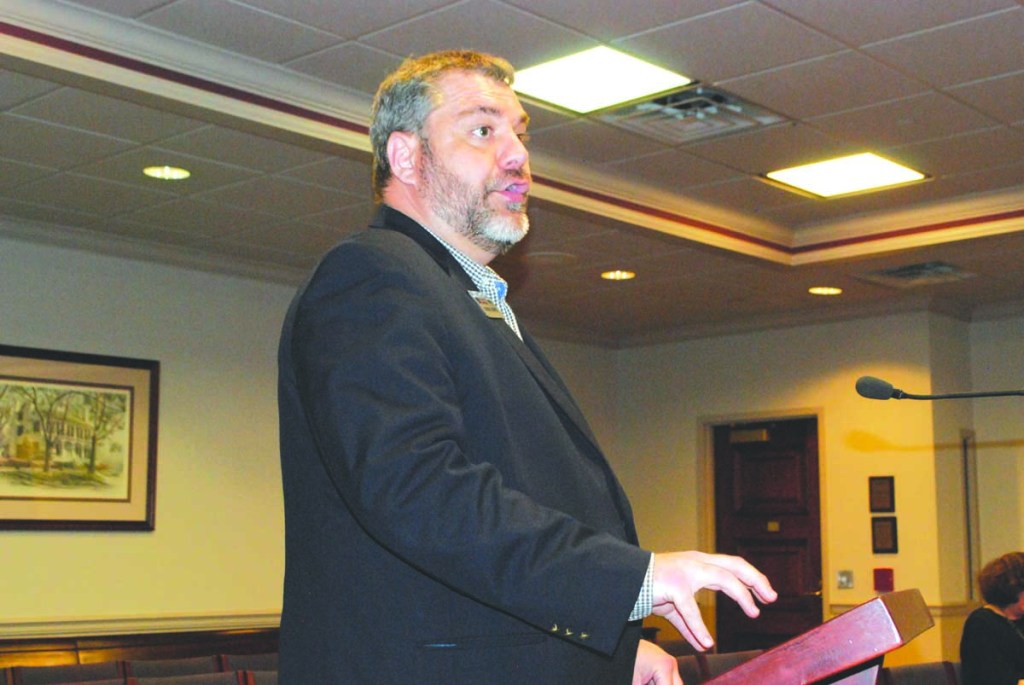Baldwin Co. Commissioners hear update on Avian flu
Published 1:00 pm Monday, March 27, 2017

- Baldwin County Extension Agent Robbie Jones talks with Baldwin County Board of Commissioners Tuesday night about the latest situation regarding Avian Influenza.
MILLEDGEVILLE, Ga. — After a couple of recent confirmed cases of Avian Influenza in Tennessee, Georgia agricultural officials are hoping it doesn’t spread to the Peach State.
University of Georgia Cooperative Extension Agent Robbie Jones, who oversees various extension programs in Baldwin County, provided members of the Baldwin County Board of Commissioners an update on the Avian Influenza problem during a Tuesday night commission meeting.
Trending
“It is not the same Avian Influenza that you have heard about in the past 10 years and that is in Asia and cross species,” Jones said. “This is a different strain. It is not crossed out of avian species, but it is spread by migratory birds, so we’re not out of the woods yet with the migratory birds and their migration patterns.”
Jones said Avian Influenza is spread by migratory birds and comes out of Canada in the fall.
“We find it through the winter, and then in the spring they go back up to the north U.S. and back into Canada to give them their birds back and we get out of that window,” Jones explained. “But right now, we’re still in that window.”
It had been looking good until a county in Tennessee recently reported two confirmed cases near each other, Jones said.
State officials in Georgia and Tennessee instituted last Thursday what Jones described as “a lockdown procedure” and a Georgia state veterinarian issued an executive order that all non-commercial poultry in Georgia be placed under what is called a no-movement ban.
“It means that if you have chickens in your backyard, you cannot under order of the Georgia Department of Agriculture move those chickens off your property,” Jones said. “They have to stay where they are, unless its commercial chickens and they can be moved to the processing plants.”
Trending
Jones said it’s not a matter of worrying about human beings, but rather protecting and making sure the poultry industry in Georgia is not affected.
Jones said he and others are more concerned about the possibility that Avian Influenza could spread into the poultry industry in Georgia, which is annually an $11 billion industry.
“We know that the issues that happened year before last that happened in Iowa and Minnesota when they had it happen there,” Jones said. “If we had a similar occurrence here — we’re talking where there were hundreds of millions of dollars — we’re talking billions of dollars of economic loss and impact to our poultry industry.”
Jones said Georgia is the fourth leading producer of poultry in the world.
“Georgia, itself, produces a lot more chickens than the rest of the world does,” added Jones. “It has an economic impact. And that’s the reason for the executive order.”
Under the existing order, through the Georgia Department of Agriculture, non-commercial chickens cannot be moved and no chicken sales, chicken shows or any free-range chickens will be allowed in the state.
“All of them (chickens) have to be in a (covered) coop until after this order is rescinded,” Jones said. “What that means is we don’t want free-range chickens having that chance to interact with migratory fowl.”





